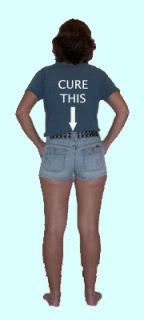I finished reading Unstrange Minds about three weeks ago, but I've only just now gotten around to writing a review of the book, in part because it took me some time to ponder the contradictions.
I'm not referring to factual contradictions. All of the historical and cultural information is meticulously researched, and its logical presentation supports Professor Grinker's conclusion that the recent increase in autism prevalence is due to a broader application of the diagnostic label, rather than an actual increase in the number of people with autistic traits.
When it comes to the personal views Grinker expresses, however, the book is a turbulent microcosm of society's ambivalent and conflicting attitudes toward the autistic population. In the introduction, Grinker frames the discussion in these paradoxical terms (p. 6):
"Autism is a terrible, lifelong disorder, but it's a better time than ever to be autistic."
As Grinker sees it, this is the best of times because our society has more understanding of neurological differences than ever before. Far more children are being identified as autistic, often at younger ages; and more services, special education classes, and vocational training programs are available for these children. Their parents are no longer being blamed by psychoanalysts for causing their autism by being neglectful or aloof. Most of the abusive institutions that once existed have been replaced by modern group homes. Better medications are available, and governments and nonprofit organizations are providing much more funding for research to improve our scientific knowledge about autism.
I'll acknowledge that these points are all true, in and of themselves. However, in the context of the prevailing cultural attitude that "autism is a terrible, lifelong disorder," one could also argue that it is the worst of times to be autistic. This is how I see it:
Far more children are now victims of society's prejudices against autism than ever before, taught from earliest childhood to think of themselves as disordered and defective. Their parents often are driven to panic and despair by a widespread mass hysteria that declares their very existence to be a devastating tragedy. They may be placed in unsuitable special education programs that do not meet their needs, and they may be given only the most basic vocational training. Although many institutions have been shut down, some still exist, and a group home can be just as isolating for residents who may be shunned or taunted when they venture outside.
The myth of Refrigerator Mother has been replaced by other myths that are equally damaging to families, such as the urban legend about vaccines causing autism, which has spawned an entire industry of conscienceless quacks who prey on parents by convincing them that they must immediately buy all sorts of bogus treatments to save their child from a terrible fate. Behaviorists also put enormous pressure on parents to go into debt to pay for intensive therapies that are touted as vital for "early intervention," although the science isn't there to support those claims. Although psychiatric medications have been improved in recent years, they also have been prescribed much more broadly and indiscriminately to autistic children who may not need them and who may not be able to tell anyone about painful or distressing side effects. And yes, there is more autism research these days, but much of it consists of eugenics research to develop a prenatal test.
I'm not sure if Grinker made a conscious choice to gloss over these controversial topics to avoid alienating potential buyers of his book or if he just hasn't given some of them much thought.
As a cultural anthropologist, Grinker is well aware that disorders are socially constructed. Indeed, the book explicitly states as much in several places, including this passage (p. 11):
"...autism, like all disorders, does not exist outside of culture. It is culture that sees something as abnormal or wrong, names it, and does something about it..."
Grinker gives us many interesting glimpses into different cultural constructions of autism, from a South African tribal culture where autistic children often are thought to be cursed and are taken to witch doctors, to the status-conscious Korean cities where children with developmental disabilities are largely ignored, to the families in India who prefer a diagnosis of mental retardation because there is so much stigma and ignorance surrounding autism.
But when he describes his life with his autistic daughter, Isabel, it's not at all clear that Grinker understands the extent to which his own attitudes have been shaped by our society's prejudices. Clearly he is a loving father who dotes on Isabel, even taking her to visit France when she develops a strong interest in Monet's garden. However, he seems to assume without question that Isabel will never leave home or marry (p. 24) even though he proudly describes her school successes, her extensive knowledge of wildlife, and her ambition to become a zookeeper (p. 300).
As mentioned by Autism Diva in a recent post, Grinker already has acknowledged that he erred in failing to interview autistic adults when he researched the book, so I won't belabor that point. It appears that, after the book went to press, Grinker became more aware of autistic self-advocacy and the extent to which his culturally-based assumptions about autistic people might be in need of some adjustment.
It just goes to show that none of us, however well educated, can step outside the constraints of our own cultural assumptions and analyze them objectively, no matter how much we believe we can.
If you've bought Unstrange Minds, or are about to buy it (and it's a good read, especially for those who are interested in history and the social sciences), I suggest that you buckle up your mental seat belt. You're in for a bumpy but fascinating ride.Labels: books about autism, culture, stereotypes

